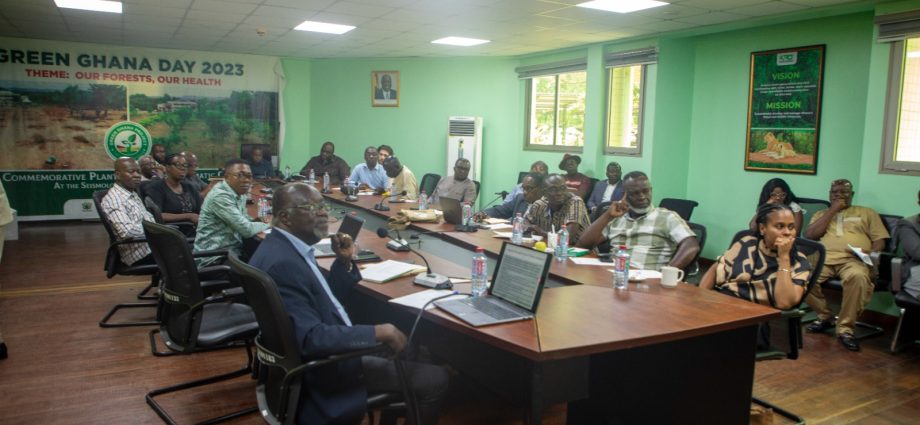As part of the stakeholder consultation for the finalisation of the review of the Ghana Forest Landscape Restoration Strategy (GFLRS), the Forest Services Division (FSD) of the Forestry Commission (FC), has held a consultative and validation workshop with members of the Parliamentary Committees on Environment, Science and Technology; Lands and Forestry; and the Ghana Timber Millers Organisation (GTMO).
This meeting was a sequel to an earlier one which was held at the Forestry Commission Training Centre (FCTC) and was attended by other stakeholder groups. The review focused on aligning the strategy with Sustainable Development Goals (SDGs) related to climate action, forest restoration and plantation development.
Launched in 2016 as a 25-year strategic plan, the GFLRS was initially set for review every five years, but this was the first review after seven years. The review highlighted achievements like initiating Green Ghana Day and tackling challenges such as land competition and foreign investments. Industry leaders and experts gave feedback during the exercise, which will be incorporated into the final strategy update.
The Chief Executive of FC, Mr. John Allotey in addressing the gathering, welcomed all parties present. He declared that a lot of change has occurred in the worldview of the forest landscape since the launch of the Strategy. He mentioned some of the topical issues the strategy addresses as climate change, illegal mining, wildfires, agricultural impact and expectations from international communities. He urged everyone to participate fully, saying, “This document represents our aspirations, interests, investment and work in Ghana’s forests”.
Dr. Kwame Asamoah Adam, standing in for both the President of GTMO and the Chairman for the Forest Industries Association of Ghana (FIAG), acknowledged the gathering and expressed profound appreciation for the opportunity to contribute to the Strategy’s development. He highlighted the concerns for the sustainability of the timber industry and concluded that the Strategy is on the right path towards the growth of the industry.
Hon. Emmanuel Marfo, Chairman of the Parliamentary Select Committee on Environment, Science and Technology, showed appreciation for the inclusion of the Committee in the discussion as plantation has moved solely beyond producing timber and more so for the involvement of Parliament as they have the mandate to ensure that public interest is included in the development of the Strategy.
Professor Joseph Cobbinah, Chair of the Forest Plantation Technical Steering Committee (FPTSC), gave a presentation on the Strategy. He outlined its goals, strategic objectives, targets, required resources, and performance indicators to track project progress. He also reviewed other key elements of the Strategy including adoption of SWOT analysis, implementation plan, financing, monitoring and evaluation.
Speaking in the capacity of the Chairman, Parliamentary Select Committee on Lands and Forestry, Hon. Francis Manu-Adabor, said, “The FC needs to show real time data on plantation via drone and satellite images and on the websites”. This is in order to make the information more accessible and publicise the multifaceted yet impactful work nature of the Commission.
There was an interactive session where the participants discussed and offered suggestions to tune up the Strategy, scheduled to be launched on the 18th of December, 2024.
In his closing remarks, Mr. Allotey, thanked stakeholders for their active participation, expressed appreciation for the constructive feedback on the draft and assured participants that all relevant suggestions would be duly incorporated into the final document.
2024-12-05


















